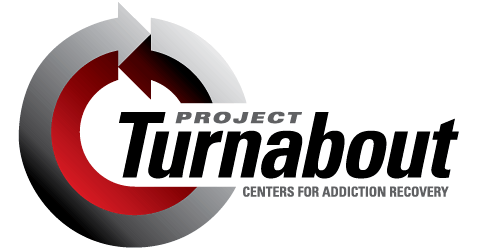Messages of Hope
Messages of Hope is a gathering of experience, strength, and hope telling life stories of personal and individual paths to recovery.
*names may have been changed to protect anonymity.
A Hometown as Fresh as Downy
That’s how Kathy describes the tiny rural South Dakota town in which she grew up. But, appearances (and smells) can be deceiving. We may be lulled buying into the idealized versions of small town life — choosing to see them as carefree pristine islands far from the mean streets of major metropolitan areas. But we would be wrong. As so often is the case, those out of the way places offer secluded cover for those with too much time on their hands wanting to experiment with drugs and alcohol. For Kathy and her friends it was about escaping the boring snail's pace rhythms of small town life; drinking became their pastime. And so with a remote creekside offering a picturesque hideaway, she began a life that would slowly meander into cascading turbulence. Feeling herself to be a bit socially awkward in her early teens and seeking a place to fit in, she migrated from those creekside drinking parties to regular use of marijuana and speed. By age 16, Kathy was breaking curfew and found herself in a cycle of nearly permanent groundings. But, she had something working in her favor — something that would buy her a “hall pass” for her behavior: good grades. Being a gifted student, she garnered freedom to continue in the lifestyle of her choosing.
After graduating from high school, she left her small town and headed off for the big lights of college life. But the allure couldn’t hold her and even before completing her first semester, she hit the road. While the destination on a map was called Colorado, her substance abuse was taking her to places called, “Failed Marriage,” “Sex Abuse,” and “Trauma.” Arriving at those “locations” only deepened her need to escape. She detoured to California for a stint, working the sugar beet fields. When that was over, she took up with a drug dealer and unintentionally became involved in some nefarious activities. But, sometimes when your choice comes down to doing what you’re told or being beaten, the price of leaving is steeper than the price of staying — you keep your mouth shut and do as you’re told.
One night though, as the despair grew, she made a desperation call to the only place she could think of, that small town home in South Dakota. She made the journey back, gave up the drugs and started school again. Sure, she was still drinking; but she had quit hard drugs. And, being the bright student with a solid work ethic she had always been, she earned a B.A. in Social Work and Psychology. Happy ending, right? Wrong. Turns out sheer willpower enabled her to control things to a certain extent, but it became exhausting. Says Kathy, “I was like a person standing outside in a swirling cyclone grabbing papers as they flew past, but no amount of effort was going to be enough to keep things from blowing apart.” Among the cherished things lost in that swirling vortex were her marriage, her stepchildren — pretty much everything she had held as dear. She now found herself unemployed and unemployable.
As she stood surveying the damage wrought, she simply lost hope and did what so many do when they reach the end. This suicide attempt went as planned. Kathy died in an ambulance on the way to a hospital. Her broken heart had given out. And her story could have ended right there in the back of an ambulance. Mercifully, something miraculous happened. She arrived at the hospital, resuscitated with a tube in her throat and tears in her eyes.
It would be nice to say that from that moment on Kathy was well along on the recovery road, but it wasn’t without its wrong turns and detours. And yet, Kathy was holding down a good job as a CNA at a nursing home. It was work that gave her life newfound meaning and purpose, but she was once again drinking and flirting with the possibility of losing everything all over again. The thought of it was too much to bear. This was the bottom. This was the start. Her first days at Project Turnabout were shaky. She kept thinking about leaving, but before long, she had 60 good days behind her — days where for the first time she began to understand the nature of her disease. Somehow it was now all starting to make sense. Says Kathy, “At that point I had lost the battle for attempting to control the uncontrollable. I finally had the perspective of looking at my battle from the outside — a part of my brain that had gone unused had finally kicked in. I got hope. And I got braver.” That’s for sure, because from there, Kathy went on to earn a certificate in Chemical Dependency studies and a M.A. in Addiction Studies. Quite a journey to be sure. Kathy has gone on to assist many others on their journeys to recovery and the sweet smell of sobriety; first as Project Turnabout’s Program Director, and today as she manages a women’s halfway house. Says Kathy, “The worst part of my life has now become the best part because the process humbled me to the point of living life on life’s terms.”
Too Much of a Good Thing
You’ve heard the stories: the heartbreaking tales of youthful emotional and physical abuse that open the door to inevitable substance abuse. So oft repeated are these stories that we can sometimes forget that the disease of substance abuse is no respecter of persons. It crosses all socioeconomic and racial barriers. We make a mistake to think there is a population that is least likely to be at risk.
Take Jonathan’s case. Here you have a young man who grew up in what might be considered an ideal All-American home. His parents were together and did an able job of parenting Jonathan and his two siblings, giving them every opportunity to go places in life.
After a successful high school career, Jonathan began college. He began working as a waiter at a local restaurant to make some income. In short order he learned that he was ideally suited for the food industry — he was making good money and enjoying the work. As his curiosity about the inner workings of the real-world food industry grew, his attraction to the ivory tower world of the classroom diminished so he left school.
Jonathan’s innate understanding of people and the food industry grew and management opportunities came his way. For a time it was satisfying enough to help others accomplish their vision; but a growing entrepreneurial itch was realized when he and a friend launched their own establishment, The Toasted Frog. Most any start-up requires a tremendous amount of physical and emotional energy, but Jonathan was young and things were really going his way. Their new venture received tremendous reviews and its popularity grew. Jonathan was living the American Dream; what could go wrong?
The Combo Platter
When you are in the food and beverage industry, there can be a lot of emphasis on the latter. After all, you have to sample the beverages you serve, right? And how could you blame a guy for winding down a bit after a long day of serving others. Those late evenings kicking back with the staff and having a few drinks after closing, well, that’s important team building, right? Jonathan’s combo platter involved three ingredients: 1) The more successful he was, the more disposable income he had. 2) He was a single man with no family obligations and a lot of freedom. 3) When you spend your days and nights at a place that serves alcohol and you are the owner, you have unfettered access. No question, Jonathan liked his money, liked his freedom and liked his alcohol; but pretty soon it started to get the best of him.
Where is Jonathan?
It didn’t take long for this combination to rapidly accelerate Jonathan’s pathway toward alcoholism. Strange too, because there was no family history of the disease on either side. Says Jonathan, “At first, little things started to happen — like missing family events or just not being as attentive to details as I had been. But, when you start missing things like family events, your mom starts to take notice. I remember my mom saying, ‘Jonathan, I’m concerned about you; I know the old Jonathan is in there somewhere.’” Jonathan had an answer for everything, of course — he was an adult, he could handle it and he could fix things. And he tried for about six months. Sure, he could hold things together for 3-4 days; but it just wasn’t working.
At that point, his normally kind and stoic dad along with his concerned business partner staged a bit of a two-person intervention on Jonathan. His partner laid out a succinct two-point ultimatum: Option One: Get help. Option Two: Don’t be my partner. Realizing the walls were closing in, Jonathan held an all-staff meeting with his employees where he shared his “secret” to a staff who weren’t in the least surprised. Following that meeting, Jonathan’s dad drove him to Project Turnabout. It was one of those long, quiet drives, where idle chatter about insignificant things has no place. But, upon their arrival at Turnabout, Jonathan’s dad hugged his son and said three very important words — words of blessing: “I love you.”
How did it feel to be dropped off in a strange new place? Says Jonathan, “Well, I was scared. But at the same time, I had an amazing sense of relief. I didn’t need to worry about keeping up any pretenses. Here I was with people of all ages and backgrounds. I looked around wondering what in the world I’d have in common with them. I soon learned that we all shared a common bond: the common desire to get better. Here I am 12 years later, and I’m still in contact with a bunch of those guys. No question, those 28 days at Project Turnabout changed my life.” While he was at Turnabout, despite the five hour drive involved, his family never missed attending a Family Day event. Jonathan describes them as being “all-in.”
It’s Not What Brought You Here, It’s What You Do While You’re Here
One of the gems received while in treatment was offered by another guy in the program who said, “It’s not what brought you here, it’s what you do while you’re here.” And those words stuck because, while it was important to understand the past, in the present he had to do some thinking about his future. Should he return to his life in the food business — the thing that had afforded him so many good things — and bad — or should he just think about doing something new? Ultimately, he decided to stay — that was 12 years, two new restaurant locations, one terrific wife and three little girls ago.
Today, he continues to share his recovery with anyone willing to listen. He also serves on the Advisory Council for the Office of Recovery Reinvented North Dakota, among many other civic and business boards. Says Jonathan, “One key to my recovery is staying outward-focused living a life of service to others.”
Food was Scarce but Abuse was Abundant
Holly grew up in a small town and doesn’t recall all that much about her early years, other than her grandma tried to protect her. But why should a young girl need a protector in her own home? Says Holly, “Early on I knew there was something different about our family. We didn’t vacation or have any of the extras that other kids seemed to have.” In retrospect, Holly realized it wasn’t that they were poor, but that her dad simply withheld food from her, along with his blessing. And, while many kids grow up poor and undernourished, Holly was living a life of psychological malnourishment — a place where love was scarce and abuse was abundant. And things were soon going to get worse.
Hiding in the Bales
A move to the country — away from prying eyes and the protection of her grandmother — and the door of abuse was flung wide open. “Let’s just say I was abused by my father. I was called dumb and stupid; it was made clear that my sister was the smart one and I was the dumb one. After a while, I started to believe it — started to believe I deserved the abuse I was receiving. At times, I prayed that God would take my life.”
As the abuse worsened, Holly would occasionally return from school to find her dad sleeping in the house. To avoid waking the “sleeping bear” she would retreat to the barn and hide behind bales of hay, taking what temporary meager comfort could be found there. Other times, she would intentionally miss her bus ride home from school just to avoid the inevitable abuse that awaited her at home. Occasionally, her mother would ask why she was hiding, but Heidi hid her emotions just like she had hid in the barn. Truth be told, maybe her mom didn’t really want to hear the answer to that question.
Flying the Coup
You can’t blame a young girl of 14 for wanting to flee the situation, if only for a weekend respite. So, when a friend asked Holly to join her on a weekend trip to Nebraska to attend a carnival, she did what other teenagers do — asked her dad for the required $75. That simple request led to a verbal confrontation between Holly's mother and father. Says Holly, “At that point, I yelled, ‘Don’t touch my mom.’ Before I knew it, he had grabbed me by the neck and lifted me off the floor.” Somehow in the melee, Holly managed to break free and proceeded to run over a mile, but her father pursued her in the family car and ran her down. He then proceeded to pull down her pants and spank her — creating enough commotion for neighbors to hear. If reading that hasn’t brought a tear to your eye or a tightening of your fists, you may want to go back and reread it. Then imagine how many times Holly has replayed that horror in her mind.
For a short while after that violent episode, Holly lived with her mom; but, as abusers so often do, her dad promised to change. He did: from bad to worse. Her dad bargained for her silence by promising to purchase Holly’s drugs and alcohol and dropped any remaining vestiges of discipline. This gave Holly unfettered access to the things that would mask the many deep pains that had been inflicted upon her.
It wasn’t long after this that Holly became the young pretty girl who could get crack for free and her profile rose with her peers. This whole arrangement worked for awhile until her dad found another woman and Holly was no longer needed. Soon enough, her father and his new girlfriend had Holly removed from the house, and so she returned to her mother.
I’m Just Trying to Love You
With her dad now out of the picture, Holly moved back in with her mom and her new husband. But things were different this time. Holly disliked and distrusted her mom’s new husband, but it was more because she couldn’t figure out what to make of his relentless kindness like the the elaborate breakfasts he would prepare for her. His acts of kindness were met with silence that her stepdad simply couldn’t understand. One morning he finally blurted out, “Dammit Holly, what’s wrong with you? Why won’t you let anyone love you; I’m just trying to love you.” While her stepfather was a good man and did his best, Holly was simply doing her best to mask the years of pain with drugs and alcohol, substituting one form of abuse for another. One thing she began to notice was that while life was better with alcohol, she actually really needed to drink to become sociable — it helped her attract friends.
At age 23, Holly was married. Naturally, the man who was responsible for abusing her for the first 16 years of his life — the person she hadn’t seen for years — expected to walk her down the aisle. The honor, instead went to her kindly stepdad. Her biological found his seat at the back of the church. You may think that getting married was the start of a new lease on life; you would be wrong. After taking her vows, Holly's binge drinking only increased. A bartending job only added fuel to the growing fire and a divorce quickly ensued.
The Day an Angel Answered the Phone
On a couple of occasions, when the hole seemed too deep and dark and without a friend to be found, it seemed logical to look for a way out. On her second attempt to escape the pain, she planned to walk out into traffic on busy highway. Just prior to taking those final steps, she called her ex-husband and asked him to hug her dog goodbye. When he asked her why, she simply said, “Nobody loves me.” After a brief pause, she heard words that changed her life. His reply? “But, I do.” Those words were her impetus for seeking treatment. At first, her time at Turnabout was rocky. Says Holly, “Honestly, I hated it and thought it was all B.S., but the staff seemed to see something in me — something I hadn’t seen myself — that I had value; they gave me the courage to believe in the possibility of a new version of me.”
Oh, and we should add, that “angel,” the one who answered the phone? Today, he and Holly are together. Sometimes love is couched in flowery language, but in this case these words from the biblical scriptures provide an apt description of Holly's journey: “Love bears all things, believes all things, hopes all things, endures all things.” Choosing love can be the hardest, bravest thing a person can do. But, true to her recovery, Holly summoned the love to even forgive her father, the man who sent her life careening out of control in the first place. It just doesn’t get any tougher than that.
Creating A New Life!
Along with creating a new substance-free life for herself, Holly has tapped into an unending fountain of newfound creativity. Says Holly, “Who knew I was so crafty; I’m constantly making stuff, even our kitchen table!” And get this, she now plays the harmonica and the guitar. And, if you play your cards right, you might just find her sitting in at the Project Turnabout’s “Turnabout Fridays” at Whitney Music in Willmar, Minnesota. She gives a lot of the credit for her new life to those at Project Turnabout who saw something valuable in her at just the time she had given up on herself. Words to others who are mired in substance abuse? “I’d simply say, if you want to quit you can. It won’t be easy; I still need to face all of those old things in my past, but now I have the tools of recovery. Believe me, there is light at the end of the tunnel and it’s pretty great!”
A Trip to Nowhere
Lori’s growing up years read like a road map to despair. While nobody intentionally sets their GPS for a journey of destruction, with substance abuse as a traveling partner it just happens. You know how it goes: an alcohol-fueled divorce sends a family careering out of control, leaving the children to grow up without direction and discipline. Pretty soon you find yourself in a lonesome nowhere destination, hopelessly lost. That’s how Lori’s life journey began. Thank goodness she found the exit ramp.
A Girl with Drive and a Monte Carlo
About the time most kids are brimming with enthusiasm about passing their driving exam and thinking about their futures, Lori was already well along the road to trouble. At age 14, she began experimenting with alcohol; by 16 her grandmother was expressing concerns about Lori’s “marijuana smoking.” Little did grandma know that Lori was way down the road from there, having become a regular coke, meth and LSD user. Despite a strong work ethic and smarts, she found no use for school. Soon, she was out on her own and doing what she had to do to survive. She was bright enough to understand that the best way to get by was to serve as a middle person, a position where she honed her skills of manipulation and justification to new levels. Says Lori, “I could have applied my smarts to something else, but to feed my addiction I learned the tricks of the trade as a drug runner. It led me into doing things I had vowed I’d never do — driving without a license and occasional prostitution — whatever it took to get by.” In Grand Rapids, Michigan, she became acquainted with a significant drug group that would benefit from her ability as a middle person. All the while, Lori somehow maintained steady, legitimate employment while at the same time enhancing her reputation as a reliable drug runner, making frequent trips from Michigan to South Dakota. She put a lot of miles on a tricked-out Monte Carlo — her favorite feature being a wooden coffee table that offered perfect drug calibration lines. She did lots of driving in that car, without the benefit of a license, but that was the least of her offenses.
Kicked Out of a Crack House for Lying?
Lori’s career as a “professional delivery person” came to an amusing end. That crack house in Grand Rapids was infamous for its reputation and tough guys. The local police and Feds knew it well and kept an eye on it. Despite her former reliability with her business partners, Lori’s drug use was on such a rapid progression that even they gave up on her: she was fired for lying to them. Turns out even bad guys have their code of ethics — they don’t like being crossed. After that, she decided to return home, a move that would soon put her whole family in jeopardy over some unfinished business.
Upon her return, Lori decided to muster all of her willpower and started detoxing. One day a State Trooper pulled her over in her cherished Monte Carlo. Strangely, it was about the safest place she’d been in a long while. As she sat in the front seat of that Trooper’s car, she thought about how good it would be to simply go to jail; instead, they took her to her mom’s house and issued her a ticket.
Heaven Help Me
After that episode, Lori’s self-imposed detox was starting to weaken and she put in a call to her original drug dealer for some LSD. That evening, one of the old crew from Grand Rapids also showed up hoping to settle that old unfinished business. A confrontation ensued between the two dealers. Once that whole mess was concluded, Lori found herself alone. She walked outdoors on a clear spring evening, sat down and gazed heavenward. It was one of those nights when the stars seem close enough to touch. There, on the quiet prairie on a starry evening, Lori uttered these words, “God, I need help. If you can offer it, please help me now.” Upon returning to the house, she got super busy cleaning the house all night — maybe a precursor to another kind of cleaning. The next day was Easter Sunday and she called her dad. Her dad had heard of Project Turnabout and suggested it was time to get the help she needed. Says Lori, “I was afraid to I’d be locked up — I figured it would be like going to jail, but my dad said, ‘Let’s do it today.’
Can You Bring My Big Sister Home?
Lori’s “business travels” had kept her on the road for two years. Prior to her leaving, Lori’s younger siblings had counted on her for much of their care – a role her mom didn’t adequately fill. They had missed their sister. As Lori left the house bound for Project Turnabout, her little brother asked her, “Can you bring my big sister home?” Once in the program, she had her reservations, but was happy to learn of the co-ed nature of the program figuring part of her role was to flirt with the boys. No question, she made great progress at Turnabout and as her year stay was coming to a conclusion she figured she’d be going home to live with her grandma.
Way to Go Grandma!
After a year, Lori was looking forward to going home, but she was in for a surprise. Previously Grandma had pretty much gone along to get along, but during that year she had found some new resolve. As much as she loved her granddaughter, she simply knew moving back in was not going to be in anyone’s best interests. She announced to Lori, “Sorry, you can’t come home.” In so doing Grandma had made a difficult and necessary choice to not enable her granddaughter. This news came as a shock to Lori. Her housing option? A halfway house for women for the next 6 months. To this day, Lori is grateful to her grandmother for exhibiting some much needed tough love. Speaking of today, after a 16.5 year stint with IBM, managing worldwide inventories, she now runs her own 21-person cleaning company. And while that is great news, she is most proud of being married and of her teenage daughter and son.
God, I’m About to Do This. I Need Relief.
On a mild December day in 1992, a young man named Steve snatched his shotgun and headed out the door. Hunting? No, he carried but one slug. He pointed his truck out the drive and headed for a lonesome country road. Once satisfactorily secluded, he eased his truck just off the road and parked. He sat there in solitude, reflecting on his lifelong struggle to find the elusive meaning and self-worth he had so desperately sought. He prayed, “God, I’m about to do this. I just need relief.” With that, he stepped out of his truck, aimed his shotgun at the left side of his face and squeezed the trigger. He soon realized he’d blown a gaping hole in his face, but miraculously was still standing. “What now?” he thought. He could just sit in his pickup and bleed out or he could summon something that only moments earlier he had relinquished — his will to live. He decided to drive to a nearby hospital, but soon realized his strength was waning as blood cascaded from his face. He managed to pull into a construction site in a frantic search for help. Then came a familiar voice, “Steve, what do you need?” All Steve could say was, “I’ve been shot.” At the hospital a mortified nurse gazed upon his injury, turned her head and left the room in horror.
Steve was administered last rites. The E.R. did all they could before putting in a call for a Minneapolis-bound ambulance, where he arrived, still alive, 1 1/2 hours later. Now that you know how Steve got to Minneapolis, you should how he arrived at this place in his life.
I’m a Nobody
From his earliest recollection, Steve carried a strong sense that if he could just be somebody else life would be tolerable. But from his earliest memories Steve recalls a relentless accusatory internal tape that played over and over in his mind, whispering, “Steve you are not worthy; look at your brothers; you’ll never measure up; you really weren’t meant to be; everyone is better than you.” Despite being brought up in a loving home environment, Steve simply couldn’t tolerate the thought of going through life being himself. He held a deep-
seated distain for his very existence. Few of us could ever understand the kind of heartache and pain that involves your brain constantly telling you how worthless you are.
School? What’s the point of it when you are failing at life? Despite his lack of interest in academics he managed to graduate high school.
Courage in a Can
During 10th grade Steve and a friend did what teenagers often do, they found a 6-pack and split it. That day, after three beers, Steve came to a “miraculous” realization that he was capable of anything. It was as if that tape in his brain with its relentless accusatory messaging had been muted. Now the alcohol was doing the talking and it was telling Steve a whole new story. In those first three cans of courage Steve discovered the newfound strength to do things once thought impossible. Those girls he had been too shy to talk to? No problem. Ask a girl for a dance? Absolutely. Steve was really starting to like the new version of himself. But, now, the trick was going to be how to keep Steve version 2.0 going.
A Case of Misappropriated Identity
Amazing how your self-image and peer status elevates when you become that go-to guy for purchasing alcohol for your high school drinking buddies. And that is precisely what happened to Steve. After procuring an identity, his social status climbed from zero to hero. But at some point, Steve was realizing that he didn’t drink like the other guys — his tolerance for alcohol was increasing and his need for quicker results was burgeoning. As Steve says, “I don’t know, beer was just taking too long — I went to whiskey to accelerate the process.”
An Out of Control Swirling Vortex — Collateral Damage
This next chapter would require an entire book. The themes are all too familiar to those who have experienced the heartache of substance abuse: an ill-advised marriage; an all-too-early pregnancy; a failed marriage; a shattered family; career opportunities offered — career opportunities lost; a long trail of broken trust and widespread collateral damage. Then came that fateful day in December of 1992 when Steve rolled his eyes heavenward, said a prayer to the God he hoped was there, and pulled the trigger. After three days in a coma, Steve awoke and began a long recovery.
In an incredible twist of fate when some years later, Steve would be asked to appear on the nationally broadcast television show, “Geraldo.” The topic? “The Stupidest Thing I Ever Did While Drinking.” Not wanting to participate in a media circus event, Steve sought out advice from wise friends and counselors and decided that if done properly and for the right reasons his participation could have a positive impact on those needing help for their substance abuse.
While the topic may have sounded light hearted, Steve’s segment was anything but that as he described his attempted suicide. Geraldo listened intently and then said, “Steve you must be the luckiest man in Montevideo.” Steve’s reply? “Yes, I found sobriety!” True enough, but after four years of sobriety, Steve stopped going to meetings and relapsed.
Sometime after that broadcast, Steve visited his beloved mom who was by then residing in an assisted living facility. She had been uncomfortable with the idea of watching her son on television, but the other residents had and they told her about it. So the next time Steve visited, she looked right at Steve and said, “All the ladies are saying what a wonderful job you did on that show.” Shortly thereafter, Steve’s mom passed on, but she did so with the knowledge that her boy was going to be fine.
And it would be nice if the story could simply conclude on that somewhat saccharine note, but in recovery honesty is a prerequisite.
During his respite from drugs and alcohol Steve had acquired an uncommon ability to do stellar work in a paint booth. In the same way he’d been that go-to guy for procuring their partying assets, Steve had developed a great reputation as a skilled painter. From painting apartments to aircraft fuselages, Steve had a touch. Color Steve’s world beautiful, right? And it was until he required a shoulder surgery. Ever have to answer that question after surgery about “any addiction to prescription drugs”? Unfortunately, Steve in a moment of weakness denied his problem. His surgery went well, but let’s just say the recovery was rocky. The meds gave way to heavy doses of alcohol. Sensing the danger, Steve’s sponsor warned him to check himself at the hospital — it was that or die. Steve checked in and blew a death defying
.49. While in the hospital he decided to try to make a run for it and unplugged his I.V. and started for the door, but a friendly police officer stopped him and convinced him to stay. His next stop? Project Turnabout.
Something Finally Sticks to Teflon Steve
Early in his 7th trip to treatment, Steve was still resisting. He was present, but not all there. Noticing this, Steve’s Project Turnabout group facilitator called on Steve and said, “Steve, you know, from now on, I’m calling you, “Teflon Steve.” Absolutely nothing sticks to you.” Something in that comment actually did stick and maybe stung a bit. The once impervious walls of defense had been permeated — Steve got to work on his recovery — only this time for real. Upon leaving Turnabout, he participated in a Sunday morning group, first as an engaged participant and later as a General Service Representative, (GSR). That was 18 years ago. During that time, Steve has reconciled with his brothers and forged an unshakable family bond.
A Prayer Answered
Steve has gone from being that little boy who ardently wished with all his might he could be somebody else to becoming a man — a man with a mission to serve others. Says Steve, “I think God wants us to be happy and he wants us to be busy helping others.” And to think getting there required a prayer in a truck all those years ago. Instead of Steve’s life ending, it was just beginning. Today, Steve’s family includes a couple of loving daughters and four grandsons who keep him busy. He has been a Community Educator for SAVE (Suicide Awareness Voices of Education) now for over 15 years and is frequently called upon to speak and write on Depression, Alcoholism and Suicide. Says Steve, “I have a great life!” Indeed, you do.










